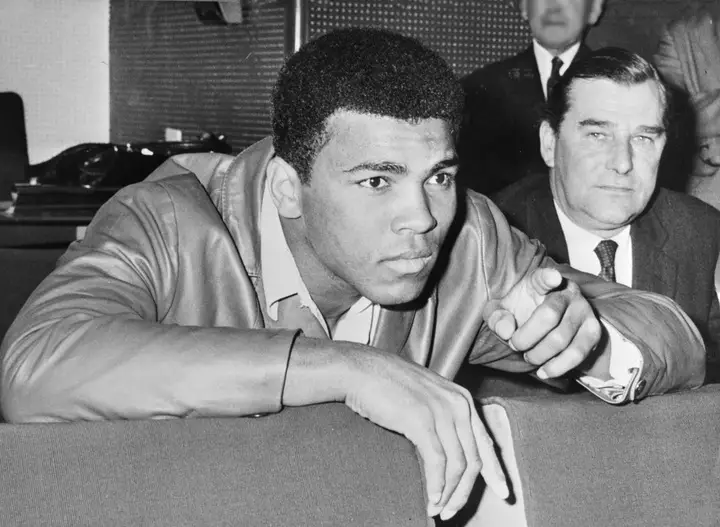As the anniversary of one of boxing’s most storied encounters approaches, the world is once again captivated by the legendary match that took place in Kinshasa, Zaire, on October 30, 1974. Muhammad Ali and George Foreman clashed in what became known as the “Rumble in the Jungle,” a breathtaking confrontation that transcended the sport itself. Today, the discussion around this fight draws in not only ardent boxing fans but also individuals unfamiliar with its historical context. The fight stands as a testament to the enduring appeal of storytelling in sports, where glory, drama, and surprising outcomes shape the narrative.
In the 1970s, Foreman was a singular force within the heavyweight division, boasting a record of 40 wins, with an astonishing 37 knockouts. Viewed as a monstrous predator, he frightened opponents and spectators alike, leading many to conclude that Ali, who was perceived as past his prime at 32, would stand little chance in this battle. Prime Ali was already a legendary figure, whose unique charisma and lightning-fast footwork had redefined boxing. However, against Foreman’s raw power, the narrative framed him as an underdog. Foreman’s intimidating presence, combined with his previous victories over Ali’s notorious rivals, created widespread skepticism regarding Ali’s ability to reclaim his title.
What makes the Rumble in the Jungle remarkable is not just the ferocity between two titans but also the brilliant strategy employed by Ali and his legendary trainer, Angelo Dundee. Fighting was often more than mere physical prowess; it required tactical wisdom. Ali, adept at psychological warfare, manipulated Foreman’s brute force. Contrary to popular belief, Ali didn’t succumb to Foreman’s might; instead, he established a plan that involved taking the fight to the ropes—an unexpected move that would tire out his opponent.
As Ali soaked in the barrage of punches, many spectators feared for his safety, questioning the wisdom of letting Foreman unload his power. But Ali was confident in his strategy, which some might interpret as reckless, but his resilience soon proved it was a stroke of genius. Ali’s famous “rope-a-dope” tactic showcased his exceptional endurance and ability to absorb punishment while waiting for the right moment to strike back. The fight culminated in an eighth-round knockout that shocked the world. Ali’s victory was not merely a personal triumph; it symbolized hope and resilience, striking a blow against the expectations of a society rife with skepticism toward any form of dissent.
As is common with monumental events, the Rumble in the Jungle generated a plethora of myths and misconceptions that linger to this day. One such myth involves the infamous “loose ropes,” which numerous audiences believe were intentionally undid to aid Ali in his strategy. In reality, Dundee’s attempts to secure the ropes proved ineffective due to the extreme heat in Zaire. As he explained, expectations around how the ropes would hold fast under such conditions were misplaced. His concerns also included Ali’s safety should Foreman’s powerful strikes force him out of the ring. Such nuances demonstrate how legends can morph into something more palatable or exciting over time.
Another myth often perpetuated in discussions about the fight is the extent of Ali’s resilience, which some portray as invincibility. This oversimplification detracts from the true artistry that Ali possessed. He wasn’t just athletic; he was also cerebral and aware of his physical limitations. This duality allowed him to cleverly navigate a fight that many deemed unwinnable.
The monumental win over Foreman was only one of many milestones in Ali’s illustrious career, but it undeniably ranks as one of his most significant achievements. Even after his passing in 2016, people continue to discuss not just his fighting style but the cultural ramifications of his victories as a black man in America during a tumultuous era. Ali represented more than just sport; he embodied a fight for justice and equality, challenging societal norms through his defiance.
As the boxing world revisits this epic showdown, it’s essential to acknowledge how it transformed the landscape of the sport, inspiring future generations of fighters to believe in the improbable, to resist the odds, and, more importantly, to push boundaries beyond mere competition. The Rumble in the Jungle remains a crucial chapter in the annals of boxing history, one that continues to resonate through time, symbolizing tenacity, strategy, and the quest for greatness against overwhelming odds.

